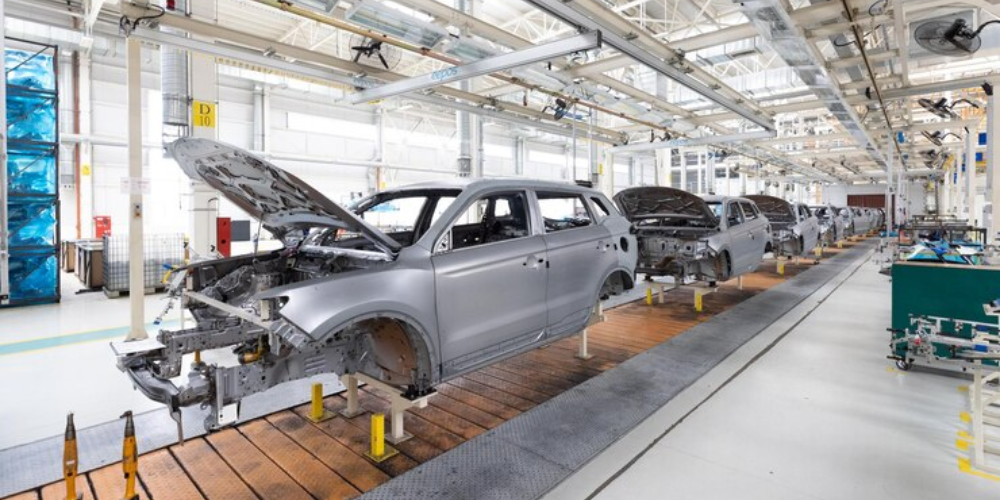
Auto Industry’s Ongoing Disruption – What’s Changing?

The auto industry is undergoing rapid change, with several key factors reshaping its future. A recent report by PwC highlights significant disruptions expected to impact the sector by 2025. These include tariffs, electric vehicle (EV) adoption, competition from Chinese automakers, technological advancements, shifting consumer preferences, and global economic challenges.
According to a PwC survey, 48% of automotive CEOs believe their businesses will not remain economically viable within the next decade unless they reinvent their operations. Clearly, the need for business agility has never been more critical in the automotive world.
At the same time, PwC’s report warns automakers to brace for uncertainties. It states, “Even the most well-designed plans can be derailed by geopolitical, economic, and climate-related events beyond your control.” As a result, companies must become both resilient and adaptive to grow under such pressures.
The Impact of Tariffs on Automakers
Proposed tariffs could drastically alter the cost structures for car manufacturers. The potential tariffs include:
1. A 10–25% markup on goods from Canada and Mexico
2. Up to 60% tariffs on imports from China
3. 100–200% tariffs on vehicles built in Mexico
These tariffs could significantly affect automakers like General Motors, Ford, Volkswagen, Toyota, and Stellantis. Paul Waatti, director of analysis at AutoPacific, explained, “Tariffs on vehicles produced in Mexico could disrupt supply chains, increasing production costs and leading to higher consumer prices.”
Mexico has become a vital hub for manufacturing components used in nearly all vehicles. If tariffs target the supply chain, the ripple effects will likely influence automakers worldwide.
The Slow but Steady Rise of EV Adoption
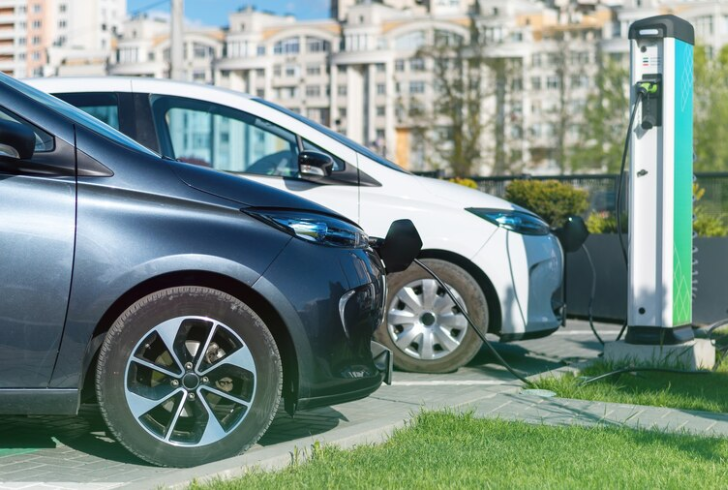
Instagram | frimufilms | EVs are evolving with affordable options.
Electric vehicles (EVs) are becoming a critical part of the automotive industry’s future. However, adoption rates in the U.S. have been slower than expected. Meanwhile, PwC predicts growth will continue, albeit at a moderated pace, as new models enter the market and prices decrease.
At the same time, balancing regulatory requirements with market demands remains a significant challenge. Automakers must predict years in advance while developing their strategies. To succeed, companies are focusing on regionalizing operations and optimizing supply chains. Notably, Volvo, BMW, Hyundai Motor Group, and Mercedes-Benz are already investing heavily in North American production.
To appeal to customers, PwC suggests automakers lower prices and incorporate advanced technology into EVs. For instance, Hyundai Motor Group has excelled in this area by offering vehicles with premium features, such as its Kia and Genesis brands, at competitive prices.
Paul Waatti noted, “Electric vehicle sales are growing but not as quickly as expected. Automakers are diversifying their offerings to include more affordable and family-oriented models.” He highlighted upcoming models like Hyundai’s “Ioniq 9,” Cadillac’s “Escalade IQ,” Volvo’s “EX90,” and Lucid’s “Gravity” as game-changers for millennial families.
Changing Emissions Policies and Their Consequences
The automotive sector faces challenges related to emissions policies. Regulatory changes could alter the Corporate Average Fuel Economy (CAFE) standards, which set fuel efficiency targets for automakers.
The Biden administration proposed raising CAFE standards to 55 miles per gallon (mpg) by 2026. After receiving feedback, they adjusted the target to 50.4 mpg for 2031 models. Future administrations could potentially roll back these standards and disrupt this progress.
Waatti explained, “Relaxing CAFE standards may slow innovation for fuel-efficient technologies and EVs, leaving the U.S. behind markets like China.” Without regulatory pressure, automakers might offer fewer eco-friendly options, and consumers could face higher costs for fuel-efficient vehicles.
The Struggle to Compete with Tech-Forward Automakers
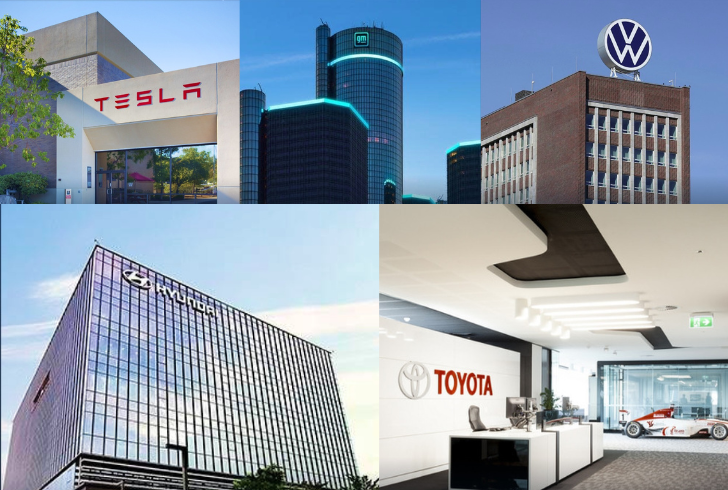
Instagram | cervknowledge | Automakers embrace EVs with smart tech.
The auto industry is transitioning toward vehicles defined by software rather than hardware. Features like over-the-air updates and subscription-based services are becoming standard. However, many traditional automakers lag in this area compared to tech-savvy companies and Chinese manufacturers.
On the other hand, PwC emphasized that automakers must overhaul their development processes to remain competitive. Companies like Tesla, General Motors, Hyundai, and Volkswagen are leading the shift to software-defined vehicles. Meanwhile, others, including Toyota, Subaru, and Mazda, are struggling to keep pace.
Paul Waatti added, “Success in the software-defined vehicle market requires automakers to rethink their approach. Those who fail to adapt risk falling behind in an increasingly globalized market.”
The auto industry faces significant changes that require innovation and adaptability. From EVs to tariffs, companies must stay agile to meet evolving challenges and opportunities.
More inAuto News
-
`
Do Car Insurance Companies Offer Pay-As-You-Go Plans?
Car insurance premiums often feel unfair to people who rarely drive. Yet, most traditional auto policies still charge a fixed monthly...
July 17, 2025 -
`
Why the Koenigsegg Sadair Spear Is the Ultimate Hypercar Beast
Koenigsegg has revealed a new beast—the Sadair’s Spear. Tuning its focus on raw performance and brutal speed, this hypercar marks the...
July 11, 2025 -
`
Which States Have the Safest—and Riskiest—Drivers in America?
Driving safety isn’t just about skill. It’s also about location. A recent nationwide report shines a spotlight on where drivers are...
July 4, 2025 -
`
How to Save on Tesla Car Insurance Without Compromising Coverage
Owning a Tesla often brings savings on fuel and a futuristic driving experience, but the conversation changes quickly when it comes...
June 26, 2025 -
`
10 Weird Cars That Turned Heads and Won Hearts
Some cars turn heads with speed, others with luxury—but a rare few grab your attention simply by being delightfully strange. From...
June 20, 2025 -
`
Next-Gen Jeep Cherokee Expected to Arrive by Late 2025
After a break of two years, Jeep is prepared to relaunch the Cherokee brand. The automaker confirmed the return with fresh...
June 12, 2025 -
`
9 Tips to Make Night Driving Safer and Less Frightening
Once the sun dips below the horizon, driving becomes more than just a commute—it becomes a challenge. Limited visibility, harsh glares,...
June 6, 2025 -
`
The Impact of AI on Middle Management and Leadership Dynamics
Artificial intelligence is reshaping modern management practices. While intended to streamline tasks like approving time off or managing internal applications, its...
May 31, 2025 -
`
Car Insurance Rates Were Set to Fall—Then Tariffs Changed the Game
For many drivers, there was reason to hope for some relief on car insurance costs this year. After a strong performance...
May 25, 2025

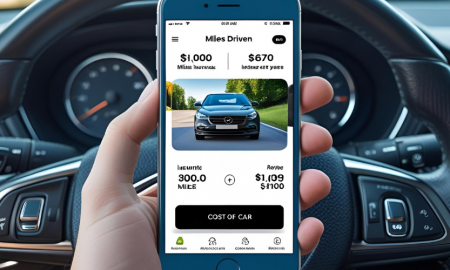
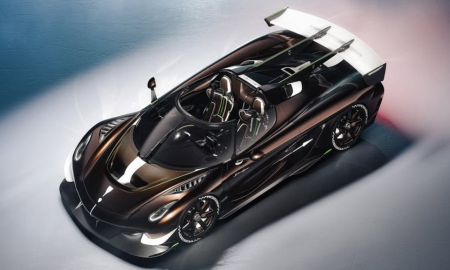
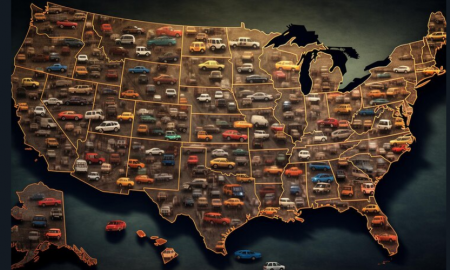
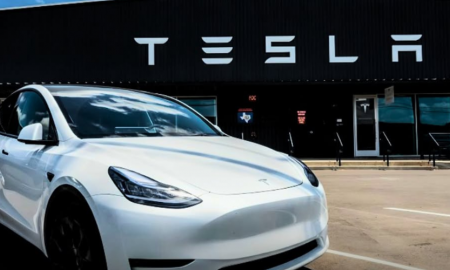






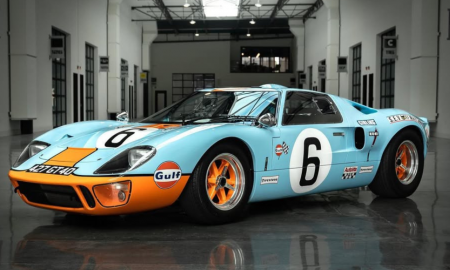



You must be logged in to post a comment Login